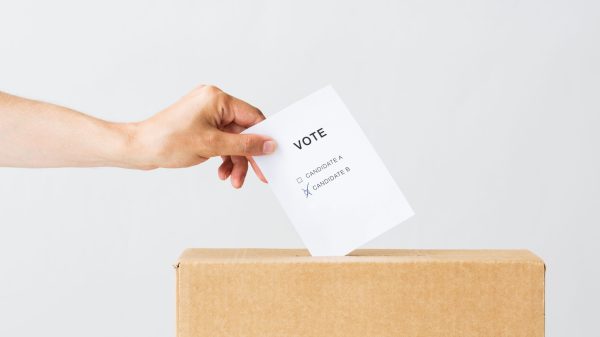In a time when election security is a topic of hot debate, state policymakers need to carefully examine the role of country registrars according to those who work inside the elections apparatus.
Alarms raised by those who work in voter registration are not over fears of a broad cyberattack leading to a fraudulent election, but that actions within the county board of registrars—where outdated laws give its members expansive autonomous power—are endangering voting rights and wasting taxpayer dollars
This is not to suggest that all registrars are doing an inferior job or are purposefully misusing their office; however, institutional failings inherent in the antiquated statutes opens a wide door for potential abuse.
The State spends around $4,000,000 annually on registrars pay, travel expenses and voter registration initiatives.
Each of Alabama’s 67 county by-laws has a board of registrars generally comprised of three appointed individuals.
Registrars verify and approve voters who are then added to the voters’ roles; they also purge those who they deem inactive or otherwise unqualified.
The movie Selma depicts a scene in which President Lyndon B. Johnson is meeting with Alabama Governor George Wallace in the Oval Office during a time when voting rights are being suppressed in the state.
During the meeting, Johnson asks Wallace why he doesn’t just let Blacks vote in the State. Wallace replies, “If I only had that power. That belongs to the county registrars.” Johnson pushes Wallace on his assertion that the registrars have all the power, but Wallace stands his ground, saying, “I don’t have any legal power over county registrars, Mr. President; they have their regulations and they adhere.”
This dramatization is not an exaggeration of facts. Alabama’s country registrars are the first and final authority on who votes and who doesn’t in the State of Alabama.
There remains to this day a suspicion, especially among African-Americans, that there is an effort within the state to engage in voter suppression. In Wilcox County, all three county registrars are white, while the county is predominantly African-American.
For decades, the voting rights of African-Americans and poor whites in Alabama were denied using country registrars as the first line of voter suppression. While The Voting Rights Act of 1965 and subsequent provisions ended blatant discrimination, many concerns remain about how the state carries out voter registration.
While country registrars are no longer free to participate in a wholesale disenfranchisement due to federal laws, they still hold tremendous sway in their counties, often receiving preferential treatment by local legislators and county commissions.
A lack of real oversight has led to a myriad of problems, including disparity of registrars pay, reimbursement for travel expenses, operating outside the opening meetings and more.
While none of the individuals who spoke to APR claim outright voter suppression at the county level, there are many real and perceived opportunities for abuse.
Under state statute, there is a board of registrars in each of the State’s 67 counties, and each board operates with nearly complete autonomy.
“Country registrars have no overlord, no boss and no real direct oversight,” according to one person who works closely with registrars and asks to speak on background because the individual is not authorized to speak publicly on the issue.
APR spoke to half a dozen current and former state officials and each says there are inherent and even dangerous flaws in the way the state’s county registrars operate.
County registrars are appointed by the governor, the commissioner of agriculture and industry and the state auditor to four-year terms. But many registrars are appointed numerous times because of the wishes of the county commission or lawmakers in a particular district.
To qualify to serve as a registrar, an individual must be a qualified elector, “residents of the county, shall have a high school diploma or equivalent, and possess the minimum computer and map reading skills necessary to function in the office,” according to Section 17-3-2 of Alabama Code.
These low-skill qualifications are seen as problematic by some who work in the system.
“Some of these people come in not knowing what the job is, they just think it’s a cool part-time gig,” said a state official. “It used to be an easier job, but today it takes real skill and frankly, some just don’t have it.”
Over the years, many registrars have been appointed as a form of political patronage.
“It still happens,” said a county commissioner. “He or she has a buddy on the commission or at the statehouse and they submit their name and nobody questions it.”
A woman who in 2007, was charged with felony voter fraud was recently appointed as a registrar. While the woman, Rosie Lyles, was allowed to plead to a lesser misdemeanor charge in the case, she was still appointed registrar in Hale County because no one ran a simple Google search.
When this issue was raised with the Governor’s office, it was referred to the Secretary of State’s office, which said because the woman was not convicted of a crime of moral turpitude, she was technically still qualified to serve as a registrar.
Registrars can only be removed for cause and that’s a high bar. Only three registrars have been removed over the last 20 years; those removals occurred in Wilcox County, Lawrence County and Russell County under the leadership of Secretary of State John Merrill.
Merrill removes Russell County registrar from office for cause
“They used to just let them get away with whatever,” said a former registrar. “It was too much trouble to remove them so they waited for their term to run out.”
While there are offices that run with peak efficiency, there are still many unqualified registrars, according to individuals APR interviewed.
Updates and Purges
Code of Alabama, Title 17-4-3: allows registrars to purge their computerized voter list continuously and strike a person from the voter list for cause.
17-4-7: charges that the registrars are to update the voter list on a continuous basis and shall meet in January to conduct voter maintenance activities and purge the voter list.
The primary responsibility of a board of registrars is to add and remove voters from the list of voters and this is where there are opportunities for mistakes to open a Pandora’s Box of problems, according to those who work in the system.
“One improper keystroke can place a person in the wrong district,” said a former registrar. “The only way to ensure free and fair elections is if a person is properly placed in the system.”
Other officials share concerns over voter purging. “This is highly skilled clerical work that demands attention to detail,” said a state official.
After a large scale purge, Congressman Mo Brooks, a Republican, and then-State Rep. Patricia Todd, a Democrat, found that they had been marked inactive and stricken from the list. Both were allowed to reenter the system after updating their information according to a report by the New York Times.
There are also concerns that a registrar who uses their state computer for personal pleasure might click on a phishing link or malware that would open the system to hacking.
“Registrars have access to vast information on voters as well as limited access beyond their county which could lead to a hacker being able to see or manipulate the entire state system,” said an individual with direct knowledge of the computer systems. “There are safeguards, but nothing is foolproof.”
Most worry about human error and not cyberattacks, but there are grave concerns that an unqualified or inattentive registrar can do serious harm.
While the Secretary of State says there are no instances of outside manipulation, it remains a possibility.
Work Day and Pay
The Code of Alabama, Title 17-3-8 outlines: sessions of the Board, working days, and special registration days.
Under State, law registrars are paid $80.00 a day and the county commission can augment that pay. While some registrars only receive their state allotment, others earn nearly double that amount.
State law doesn’t clearly define what construes a “work day” for registrars. So there are registrars who don’t adhere to an eight-hour workday.
“You can go in for 15 minutes and call it a day,” said a former registrar. “No one’s watching and no one can do anything about it anyway.”
An Attorney General’s opinion states they must work and model their hours after the county, but some registrars ignore this without consequences.
The number of days a registrar can work also varies from county to county, with some working 122 and others being open over 200 days out of the year.
Beyond daily pay, some counties offer other benefits such as in Morgan and Baldwin counties registrars, maybe afforded health insurance, which is often seen as another political perk.
Registrars are considered state employees for tax purposes but again are accountable to no one.
Travel
Former registrars, county commissioners and state employees say that the state pay for registrars’ travel expenses is an area of severe misuse of taxpayer’s funds.
“Under the guise of training registrars are regularly afforded a state-paid vacation at taxpayers expense,” said a state worker.
Title 17-4-35(13), states that the Voter Registration Supervisor under the Secretary of State’s Office is responsible for training the county Boards of Registrars.
In just the last few years, the Secretary of State’s office has offered official training under a contract with Auburn University. These trainings are held regionally once a year and are approved by the State’s official election officer through the Voter Registration Supervisor. However, individual county boards and the Alabama Association of the Boards of Registrars (AABOR) hold other training sessions for which the State reimburses registrars.
They also paid for other meetings of the Board, but much of it falls into a gray area.
There are numerous AG’s opinions that conclude registrars may be paid travel upon attending to the business of the Board. Other opinions find the Association’s meeting is business of the Board, but the Code doesn’t reference this.
For years the Board of Registrars were looked upon as a collective Board across the State for the purposes of paying expenses, but in some instances, each county board is viewed separately, which makes the AG’s opinions challenging to follow.
There was an incident not long ago according to an insider in which one county board of registrars traveled to a neighboring beach community to hold a meeting. “They traveled less than 20 miles from home stayed overnight at a beach resort and the State paid for it,” said a state employee. “Is that right? Is that good stewardship?”
A former state official lamented, “They should follow State travel laws, but they have zero accountability to anyone and no one seems to be bothered by what they do.”
Attempts to curtail travel abuse has been met with resistance from AABOR and certain lawmakers.
Operating without a Quorum
Code of Alabama, Title 17-3-7, states that all business of the Board must be conducted as a quorum: “The action of a majority of the board of registrars shall be the action of the board, and a majority of the board shall constitute a quorum for the transaction of all business.”
The official business of the Board, by statute, must be done by a quorum of the Board. Most have three members, so at least two must be present to handle their official business described in the Code.
The law requires registrars to meet as a quorum to add or take away individuals from the voter list, but this is not how some county boards operate.
“One person will add voters and then another member will sign off on it with having actually verified it,” said an APR source. “The same is true when removing someone. This is not what the laws say, but that’s what they do.”
If registrars are to, in fact, operate as a quorum, their meetings should be subject to the open meetings act according to an APR source.
After extensive interviews with six individuals who have or currently work in voter registration, it becomes clear that state lawmakers need to take a closer look at the laws that govern voting.
Alabama has a long and troubled past regarding voter disenfranchisement. While none of those individuals APR spoke with voiced concerns of blanket suppression, each raised alarms about various aspects of the whole process, especially a lack of oversight of the county registrars who historically where the vanguard in denying voting rights.
Each interviewee confirmed that many county boards carry out their duties professionally, but there is overall anxiety about the lack of standards and accountability.





















































